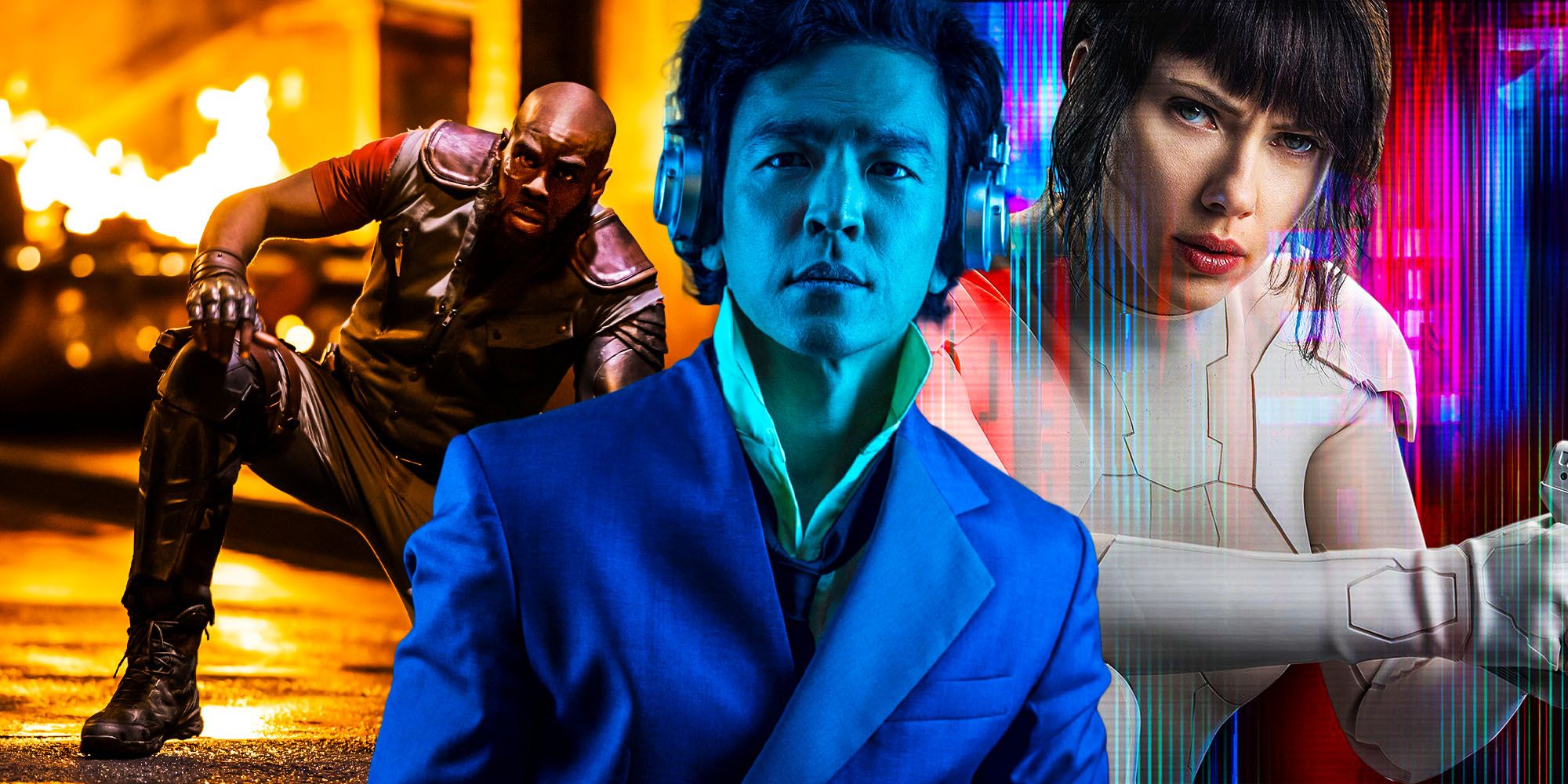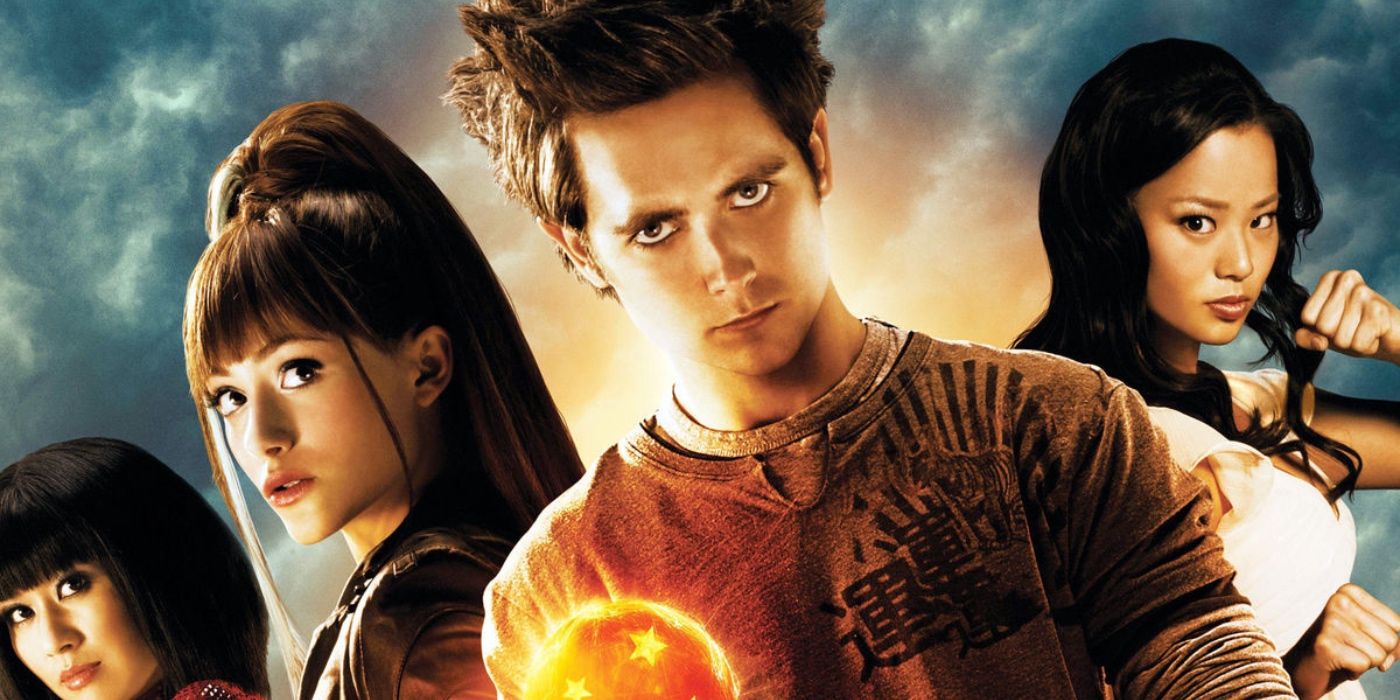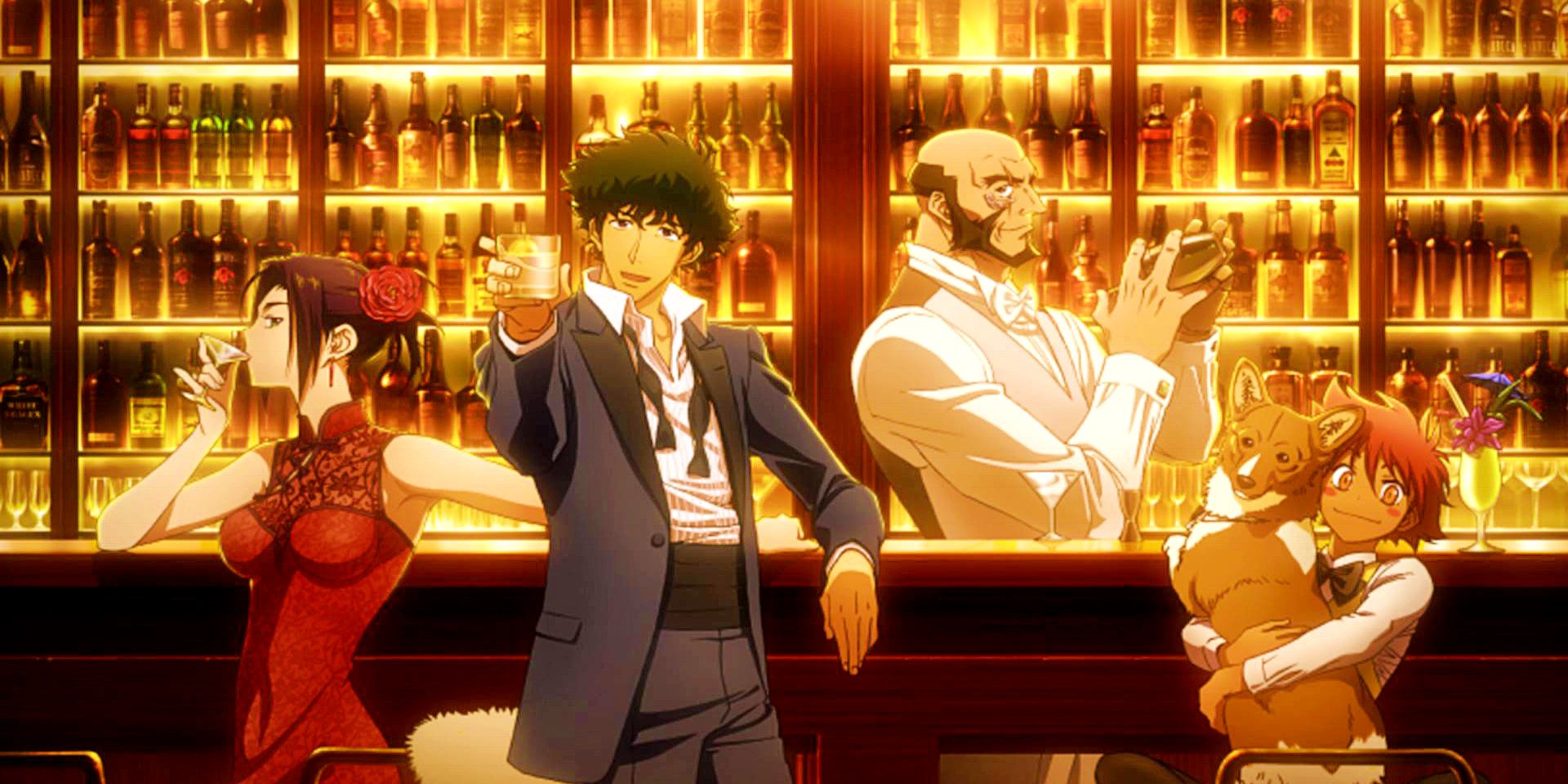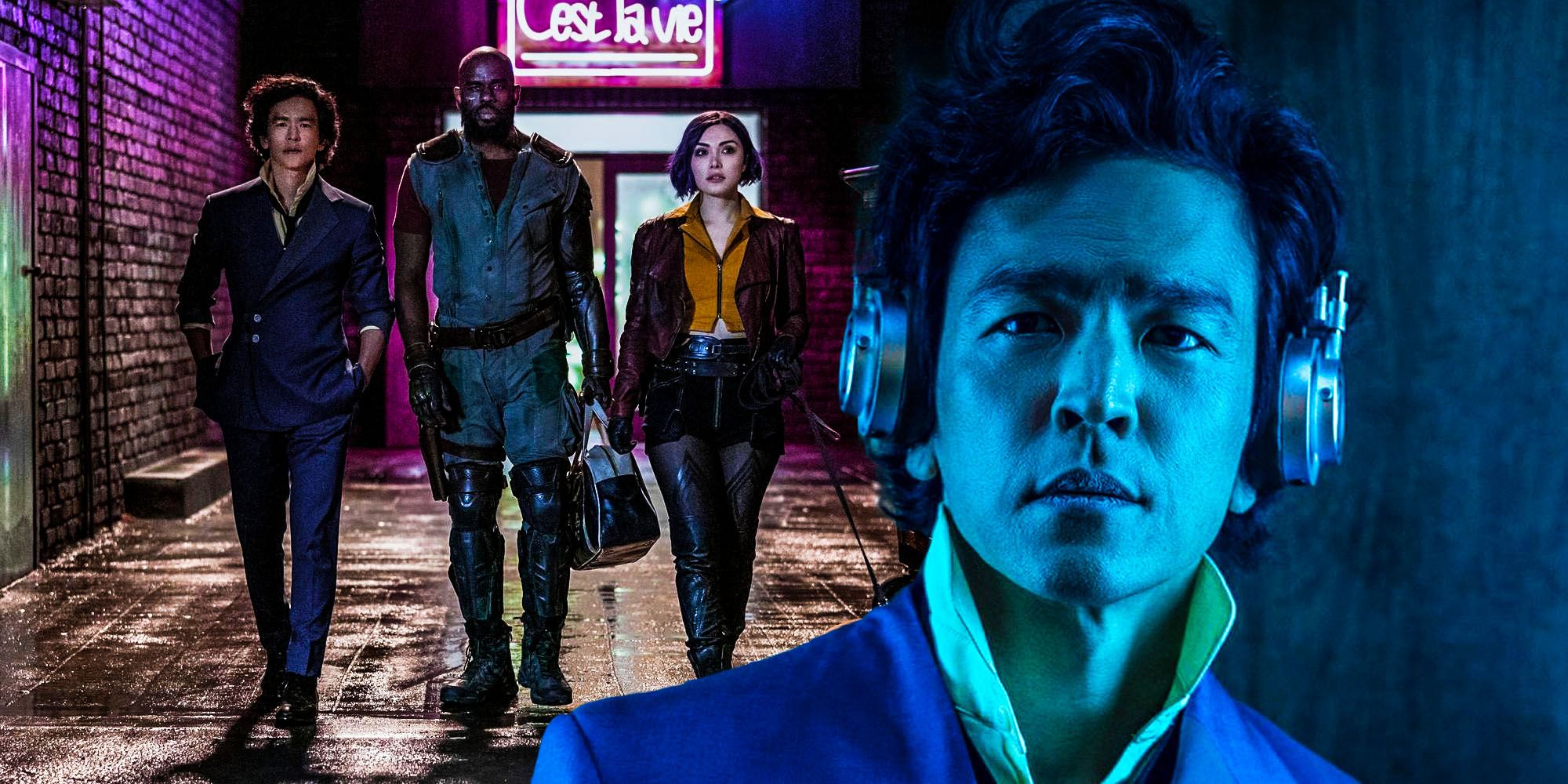
Cowboy Bebop has the potential to break the curse on countless live-action anime adaptations. The story follows ex-hitman Spike Spiegel, con artist Faye Valentine, and several other fellow outcasts aboard a spaceship called the “Bebop” during the year 2071. The crew travels together through space in search of work as rarely successful bounty hunters. The Japanese anime series concluded in 1999 and was a huge success both within Japan and internationally. Along with the compelling story and excellent writing, Cowboy Bebop is often praised for its soundtrack, which was much different from other anime at the time.
The TV series received countless awards and is often considered one of the best English dubbed anime of all time. Cowboy Bebop weaves in multiple different genres such as science fiction, western, and noir films to appeal to a wide-ranging audience. In only 26 episodes, Cowboy Bebop deals with hard-hitting themes like existentialism, loneliness, and confronting one's past.
The passionate fanbase has been cautiously excited ever since a live-action Netflix series was announced. Unfortunately, many live-action adaptations of Japanese anime or manga stories end up being mediocre or poor in quality. Cowboy Bebop has a lot riding on it to prove the cliché wrong.

Like with many video game adaptations, live-action anime has rarely worked. Movies such as Fullmetal Alchemist, Devilman, and Dragonball Evolution utterly failed thanks to their stories diverging horribly from the source material. Dragonball is often considered one of the originators of bad adaptations by setting the beloved characters in an early 2000s high school with comically gelled hair and a whitewashed cast. Considering the anime’s popularity, Dragonball Evolution's failure hit especially hard for the extensive fanbase, who would rather pretend the film does not exist.
Netflix’s Death Note is a more recent example of a film that cares very little for the original story. This version of Death Note was possibly the most unintentionally humorous live-action adaptation; this version of Death Note managed to ignore every detail from the anime it claimed to be based on. Light and L are nothing like the complex and intelligent people they are meant to be, and Misa was replaced with a different character altogether. This disaster is especially jarring compared to Japan’s live-action Death Note adaptations, which are highly praised for remaining faithful to the original narrative. Ghost in the Shell is another infamous live-action adaptation, but most of the criticism for this film is aimed at the whitewashed cast, starring Scarlett Johansson. Ghost in the Shell had a disappointing lack of Asian representation even though it kept the Japanese names from the anime.
Some adaptations managed to avoid these mistakes and garner success, like Alita: Battle Angel. Alita received mixed reviews from critics, but fans of the anime adored the movie for closely adhering to the original story. If Cowboy Bebop can learn from these live-action adaptations, it has the chance to become something special.

From its characters to its soundtrack, Cowboy Bebop is regularly considered one of the best anime series ever produced. Many fans have credited it with introducing them to anime, and its many unique characters remain well-loved years later. The group of misfits aboard the “Bebop” stuck together solely because they had no one else. Their complex, sometimes even criminal, backgrounds haunt them throughout the show. Even the level-headed member, Jet Black, has a heartbreaking origin that endears him to the audience.
Cowboy Bebop’s music, composed by Yoko Kanno, also sets the anime apart. Kanno incorporated multiple genres, including western, opera, and jazz. This fusion of styles reflects the anime itself, which refuses to conform to any one category. Kanno and the director, Shinichirō Watanabe, were often inspired by each other throughout the production process. Kanno’s music would inspire new scenes for the story, and in turn, these new scenes motivated Kanno to create new music. Her work has helped attract many devoted Cowboy Bebop fans who have high expectations for the live-action series.
These fans have diligently followed the slow stream of news revealed about the Netflix adaptation, and any small change from the anime has been met with skepticism. The greatest example is when Netflix released Cowboy Bebop's first official set photos. Faye Valentine’s updated appearance caused some outrage online. In the anime, Faye wears a very low-cut top, nude tights, and short shorts, partly as a way to distract male targets to con them. The getup for her live-action counterpart, played by Daniella Pineda, includes tall boots, black tights, and a red leather jacket. The outfit mainly pays homage to the original with its color scheme while also being practical enough for the actress to actually perform stunts. In response to the criticism, Pineda posted a sarcastic video apologizing for having the body of an actual human woman, not the unrealistically tiny-waisted and large-chested depiction of her character in the anime. Pineda also explained that Faye's original outfit could not withstand any sort of stunt work, which some fans are either dismissing or outright ignoring. This passionate response to a relatively minor change shows just how important the show is to its fans.

Despite these complaints, most of the information shared about Cowboy Bebop’s adaptation so far has left fans hopeful. It has a talented cast, including the aforementioned Pineda as Faye, John Cho as Spike, Mustafa Shakir as Jet, Alex Hassell as Viscious, and Elena Satine as Julia. Perhaps even more exciting, though, is that the original director, Watanabe, is a consultant on the series, and Kanno has returned as its composer.
Those involved in the project seem to be paying their respects to the anime by not overlooking any detail, incorporating fun features from the original with more modern elements to create an accurate and updated vision of Cowboy Bebop for Netflix. The several delays in production, first due to an injury Cho sustained and then because of COVID, could also have provided the crew with even more time to tweak any aspect that was not working. If nothing else, seeing previous live-action failures hopefully taught them not to compromise on their vision. As long as this adaptation does its best to remain committed to the story, the end result this fall will have been worth the wait.
Whitewashing and diverging from the source material are the two main criticisms of past live-action anime adaptations, but Netflix’s Cowboy Bebop seems to be steering clear of both with a diverse cast and contributions from original crew members. Watanabe’s and Kanno’s participation especially increases the chances of an adaptation that is not just faithful but a truly great exploration of this beloved world and characters.
from ScreenRant - Feed https://ift.tt/3mTE3og



0 Comments